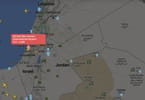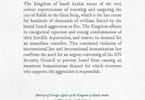In a report to the 16-member Pacific Islands Forum from the regional powers of Australia and New Zealand, it states that the global recession has cut economic growth and government revenues in vulnerable South Pacific island nations, forcing more people into poverty.
With some states running “unsustainable” budget deficits and struggling with “flat or declining growth” even before the downturn hit, the report warns that more will face destabilizing deficits if they fail to get spending under control.
The economic crisis will be a major focus of talks by leaders during the forum, which opened with a meeting of the region’s seven smallest island states Tuesday. The forum ends Friday.
The report, “Surviving the global recession: strengthening economic growth and resilience in the Pacific,” says the island nations were already badly hit by 2008’s hike in international fuel and food prices, high inflation, and falling foreign reserves.
The vulnerable small nations also are being hurt by lower prices and demand for their commodity exports, a slide in tourism incomes, a fall in remittance cash from nationals overseas, and significant drops in the value of offshore national trust funds.
The two regional powers, both big aid donors to South Pacific, said that while a global recession “is a challenging environment in which to implement reform programs,” slowing or stopping essential reforms will mean countries will become less competitive internationally and slower to benefit from a return to global growth.
All the island states have cut growth projections in 2009, with Fiji, Samoa, Tonga, and Palau facing economic contraction this year.
Low or negative economic growth in most of the Pacific Island Forum states in the past decade has held back development, with only six of the 14 countries recording a slight improvement in gross domestic output per person over the 10 years.
To fight the downturn, the report proposed that small Pacific states strengthen the role of the private sector, improve inefficient state-owned businesses, introduce more business competition, and reduce the costs to business of regulatory and legal controls.
At the same time, it warned that fiscal stimulus packages that include tax cuts, salary increases, and cash transfers could increase demand for imports and worsen current account deficits “while having a limited impact on local job creation.”
Countries like Vanuatu that have undertaken economic reform and strengthened competitiveness, are lauded for lifting growth to an annual average of 6 percent since 2004 — more than twice its average growth over the previous decade.
The Pacific Islands Forum comprises Australia, New Zealand, the Cook Islands, the Federated States of Micronesia, Fiji, Kiribati, Nauru, Niue, Palau, Papua New Guinea, the Marshall Islands, Samoa, the Solomon Islands, Tonga, Tuvalu, and Vanuatu.
WHAT TO TAKE AWAY FROM THIS ARTICLE:
- Low or negative economic growth in most of the Pacific Island Forum states in the past decade has held back development, with only six of the 14 countries recording a slight improvement in gross domestic output per person over the 10 years.
- In a report to the 16-member Pacific Islands Forum from the regional powers of Australia and New Zealand, it states that the global recession has cut economic growth and government revenues in vulnerable South Pacific island nations, forcing more people into poverty.
- The vulnerable small nations also are being hurt by lower prices and demand for their commodity exports, a slide in tourism incomes, a fall in remittance cash from nationals overseas, and significant drops in the value of offshore national trust funds.






















